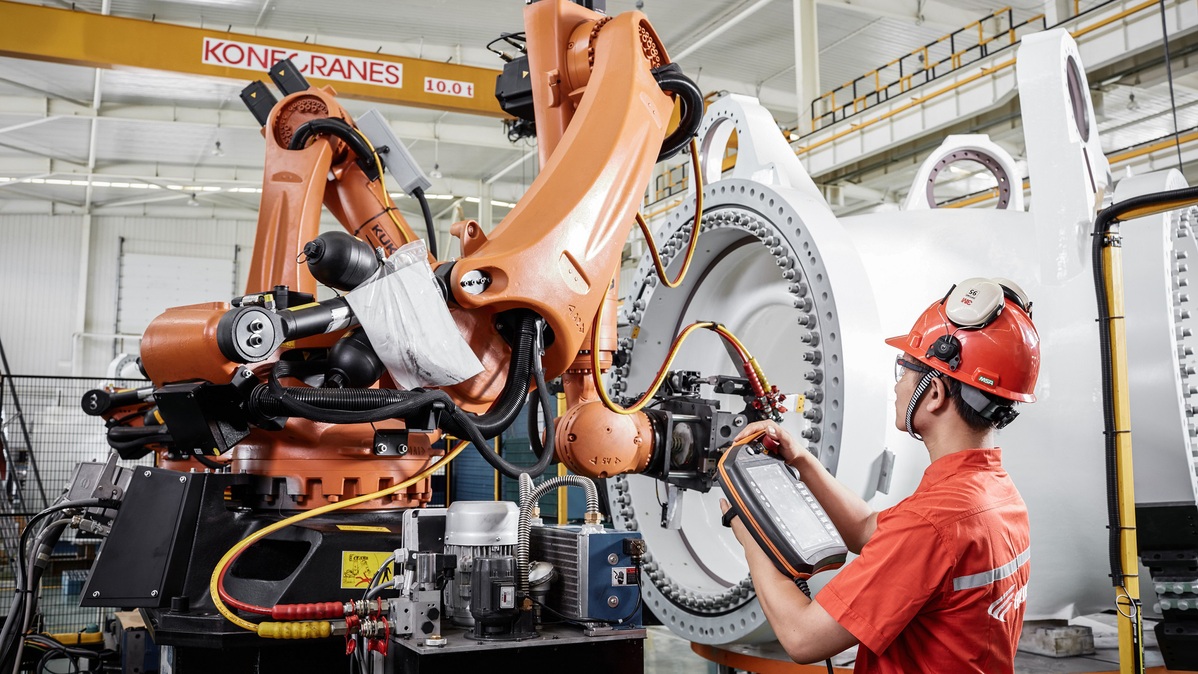Ministry sets out upgrading strategy

A technician performs a digital test on the intelligent production line of a technological company in Hami, Xinjiang Uygur autonomous region. [Photo/Xinhua]
The Ministry of Industry and Information Technology, the nation's top industry regulator, will roll out targeted policies to promote upgrading in specific industries, after China has built around 208 smart digital plants.
Vice-Minister of Industry and Information Technology Xin Guobin said efforts to advance smart manufacturing projects have attracted investment exceeding 100 billion yuan ($14.5 billion) in the past four years.
"More efforts will be made to strengthen the in-depth integration of cutting-edge technologies into the traditional manufacturing sector, in particular ancillary industries," Xin added.
From 2015 to 2018, the ministry has selected 305 smart manufacturing pilot projects as models whose experience can be learned by other companies. These projects come from 92 industrial categories.
Analysis shows that, following their transformation from traditional factories into smart plants, the production efficiency of these projects increased by an average of 37.6 percent, while operating costs declined by 21.2 percent,
Such a move is part of the broader push by Chinese companies to inject new vitality into their businesses. By introducing robots at their assembly lines, as well as big data, cloud computing and artificial intelligence into production and corporate management, they hope to be more capable of dealing with industrial cycles and seizing new opportunities.
An example of this is Haier Group, China's largest home appliance maker, which has built an industrial internet platform that allows companies to customize products while boosting productivity and cutting costs.
The industrial internet platform is a network of industrial apps that collect and analyze data from consumers, suppliers and factories boasting machines with internet-connected sensors
Chen Lucheng, vice-president of Haier, said in addition to making Haier's own factories more flexible, the industrial internet system is empowering companies by bringing them closer to consumers and suppliers.
China has cultivated around 50 industrial internet platforms that have regional influence, with over 100,000 units of industrial equipment connected to the internet, the ministry said.
The progress has been made since the State Council unveiled a guideline last November that aims to build three to five industrial internet platforms, which will reach international standards by 2025, and lead the world in key areas by 2035.
Qianzhan Industry Research Institute forecast that the market size of China's industrial internet sector will reach 10.8 trillion yuan ($1.64 trillion) in 2025, without disclosing the figure for this year.
According to the ministry, the nation has built a system of national smart manufacturing standards, contributing seven international norms and 215 national standards.
Qu Xianming, an expert with the National Manufacturing Strategy Advisory Committee, said smart manufacturing is entering a new stage where more efforts are required to achieve breakthroughs in core components and fundamental industrial software.


 +86-13460933678
+86-13460933678